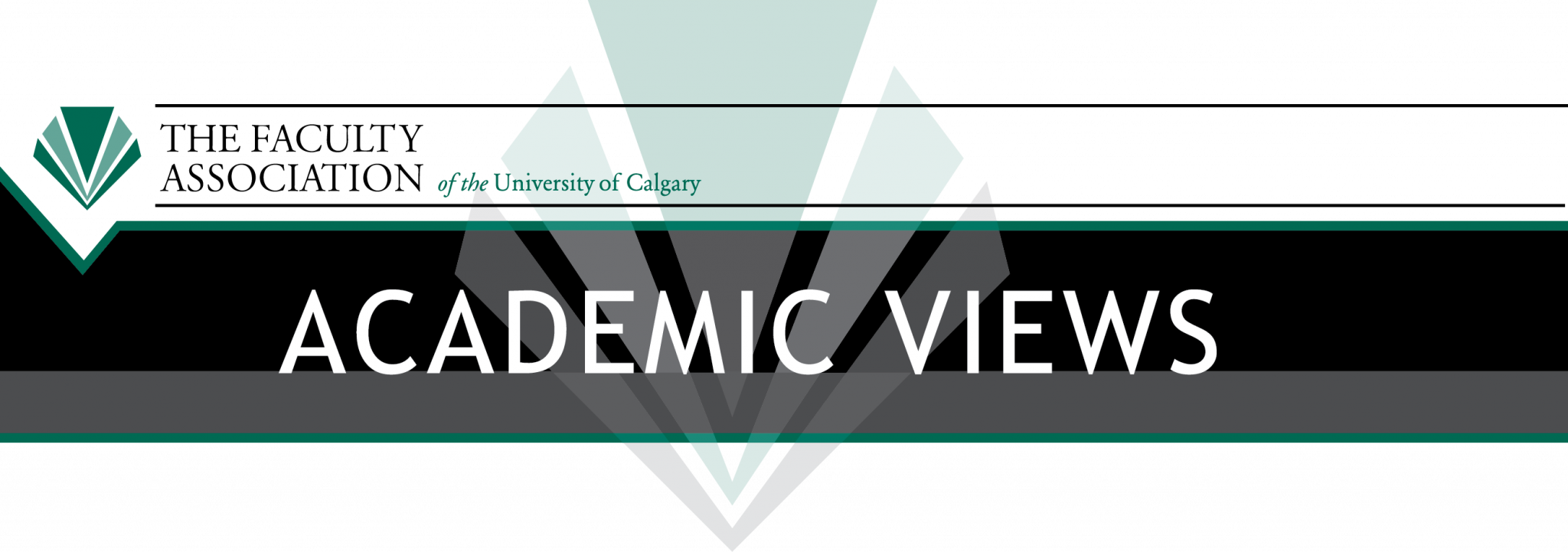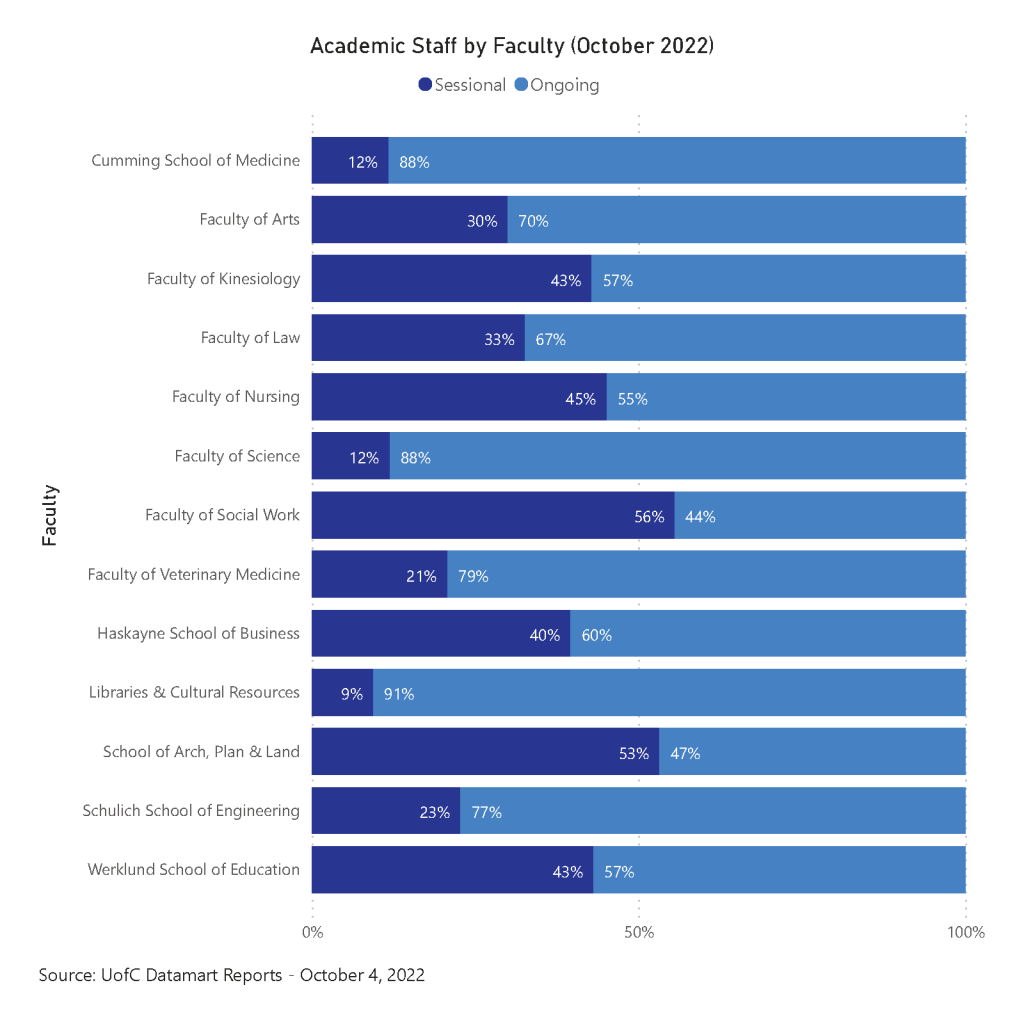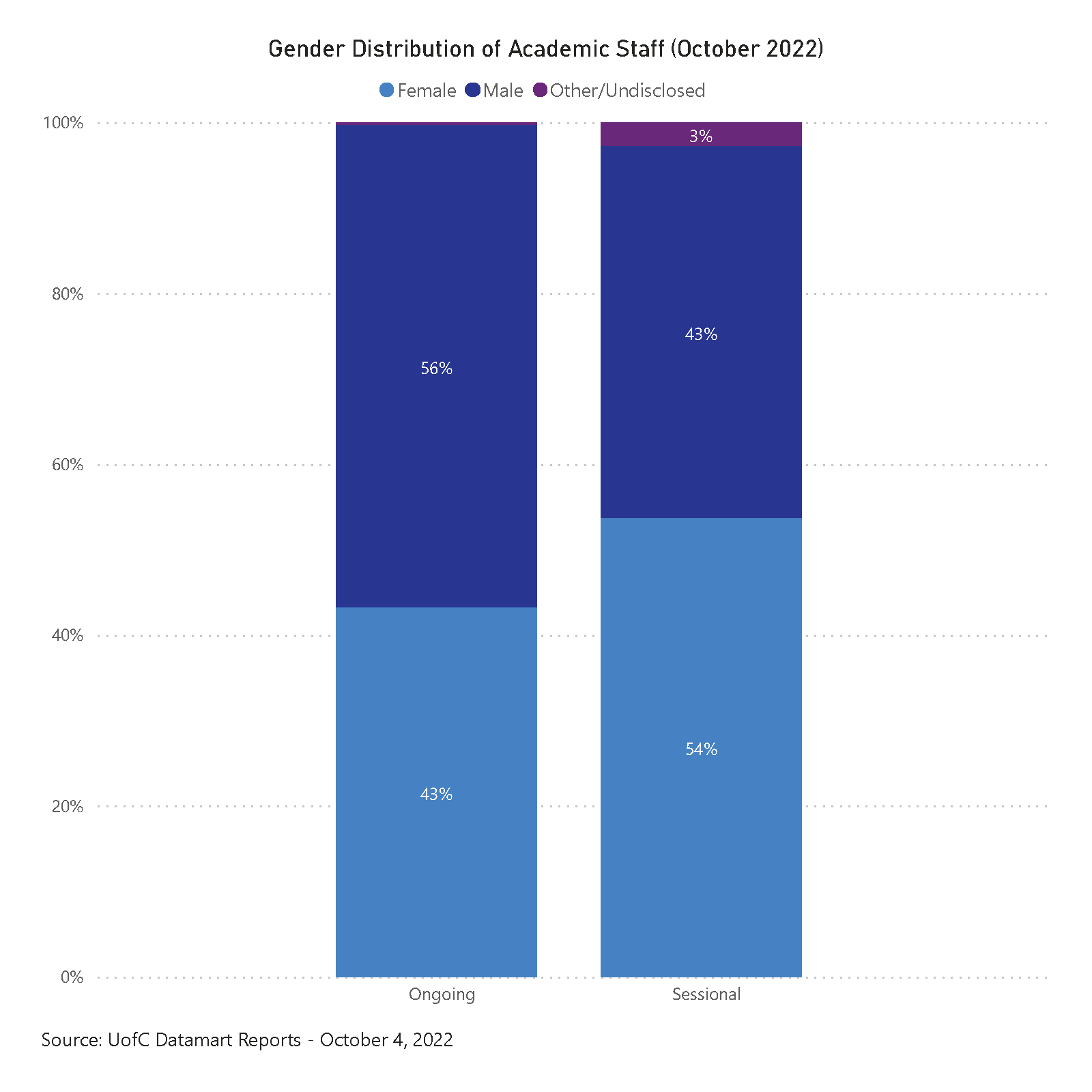
Fair Employment Week (FEW) takes place this year from October 17 to 21, 2022. Each year the Faculty Association participates in this national event that raises awareness of the difficulties inherent in being a member of the sessional academic staff. Universities continue to lean on sessional academic staff as a low-pay, flexible workforce. At the U of C, sessional instructors are typically hired to teach individual courses; they are not usually expected to do research and they are not offered long-term or even medium-term commitments beyond the individual courses.
According to a snapshot of academic staff from October 4, 2022, there are 651 sessional academic staff members representing about 26% of all academic staff at the University of Calgary. This is a significant increase since last October when we reported that there were 550 sessional academic staff members. The part-time and transient nature of sessional contracts makes it difficult to compare sessionals with ongoing academic staff, but according to the 2021-2022 Courses Taught Report provided by the Administration, it appears that approximately 28% of courses taught at U of C in 2021-2022 were instructed or co-instructed by sessional instructors. These numbers are estimated using information that the Association receives from the Administration under the Collective Agreement.
The reliance on sessionals varies among Faculties and units with some Faculties having more than 50% of academic staff holding sessional appointments. The Faculty of Arts is by far the largest employer of sessional academic staff with about 24% of all sessionals currently employed at the U of C, but several Faculties have more sessional staff as a percentage of total academic staff.

Meanwhile, the reliance on sessionals may be contributing to gender inequity at the U of C as we observe that 54% of sessional academic staff are women while only 43% of ongoing academic staff are women.

While the work of sessionals may go unnoticed by many, sessional academic staff contribute immensely to the University and collectively play a major role in the instruction of courses at the University. It is important to recognize the hard work of sessional academic staff and be aware of the precarity in which they often find themselves. Many sessionals are experienced academics with significant teaching experience that need to reapply for their job every year and sometimes every semester; often knowing that the programs they teach in would collapse without them.
The Collective Agreement states that continuing appointments are to be used to meet the continuing staffing needs of the University whenever reasonably practical (Article 23.1). We recognize that there are situations when sessionals are likely appropriate. Experts employed elsewhere who hold specific expertise may be hired for a particular course or there can be situations in which a Faculty requires an instructor to fill a short-term (12 months or less) vacancy such as when an ongoing academic staff member is on leave. The reasons a sessional appointment can be used are outlined in the Collective Agreement under Article 23.2.
The Faculty Association believes that sessional academics should be seen as colleagues, as fellow academic staff members, and as such should be fully supported in their work. The Collective Agreement outlines access to facilities, resources, and participation in department meetings (Article 23.8).
The problem of reliance on casual work is not unique to the U of C. Sessionals here and across the country are in a very precarious position as these academics work from contract to contract, being paid for piecework with few benefits.
The Faculty Association will continue to work within our institution and with our national organization, CAUT, to improve the working conditions of sessional academics and to reduce the casualization of work in the academy. We encourage all academic staff to discuss these issues with each other to help create awareness of the issues faced by our sessional academic staff.
